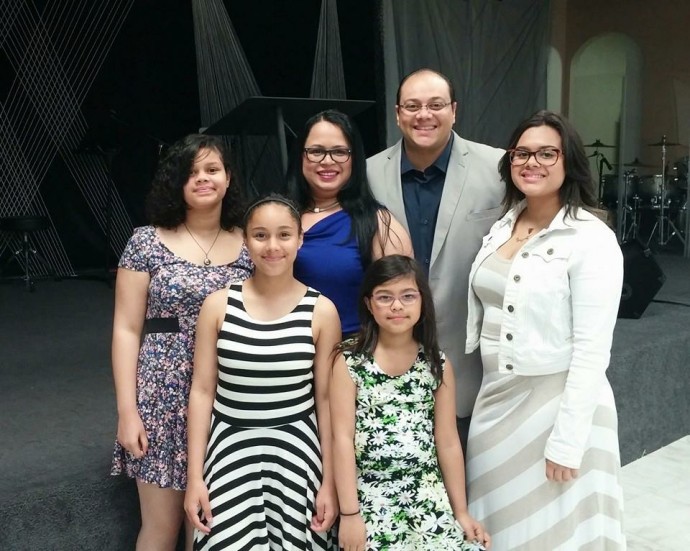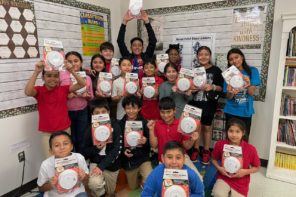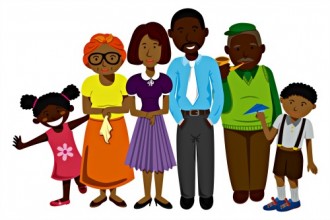My husband and I are proud parents of four daughters. When our first daughter, Meralis, started elementary school, we realized that in our role as parents, there were many factors beyond our control that she would experience in her school day—some things different from our Hispanic culture. We learned from her first few years in school and adjusted with our other three girls.
Any gained experience with our first child helped a lot, but each child had their own personality, which made parenting unique for each of them. In addition, the school community in America continued to make reforms and changes for the benefit of our children.
Our daughters—Meralis 15, Marelis 13, Mirelis 12 and Marielis 9—range from elementary school to high school and we constantly see changes in education. Parents need to keep their ear to the ground to be aware of these changes and how they affect their children and school, so their support for their child’s learning is adequate, efficient and productive at home and school.
For Hispanic families—and other dual language households—we are not always sure how to help our children adapt to the American culture and linguistic differences. Our daughters are the new generation of America’s bi-cultural and bilingual generation and we want the best for them. This is why it’s important to do everything you can as a parent to engage in their education and build relationships with the school community.
So the big question is how can we best support our child’s success? Here’s what has helped me as a Hispanic parent …
Join the local parent group. In our PTA, we use the parent curriculum to guide Hispanics and other minorities on how to navigate the school system. The parent meetings are bilingual and the meetings show us how to play an effective and positive role at home and school.
National PTA also has a variety of resources in Spanish to support you as both a parent and parent leader.
Take an active role at home and school. We made a conscious decision to have an active role in the academic life of our daughters. This means having coordinated and constant communication with teachers and school personnel.
We don’t just check that they are doing their homework, we help them with assignments. We also monitor each of their progress in school to make sure it is aligned with academic expectations for their academic grade. You can use the PTA Parents’ Guides to Student Success—which are available in Spanish—to help you track their progress.
Have an individual academic plan between the student, teacher and parents. Even though we sometimes had relationships with the same teachers that taught several of our daughters, what made each individual academic plan successful was recognizing the uniqueness and specific learning skills of each one of our girls.
We started to work on the academic plan in the early stages of their school life and we update it, based on changes of curriculum and new academic standards. The plan is not only a document, it is an agreement with each one of the players—student, teacher and parents.
Invest quality time and resources in your school community. This is key for student achievement. We participate as the school
community celebrates the achievements of our Hispanic students. This is important because it builds relationships and makes the school community stronger.
In urban cities, not all parents can participate in the meetings, so we make the most of every opportunity we have for the benefit of our children. As Hispanic parents, when we celebrate the achievement of a student from a Hispanic family, it is also our achievement as a community.
Resources for Hispanic Families
- Harvard Family Research Project: Young Latino Infants and Families: Parental Involvement Implications from a Recent National Study
- National Association of the Education of Young Children: Family Engagement, Diverse Families, and Early Childhood Education Programs
- Abriendo Puertas: A School Readiness Program that Strengthens the Leadership and Advocacy Skills of Parents with children ages 0-5
- Pacer Center: Bilingual workshops, individual assistance and translated publications focusing on issues facing families
- National Council of La Raza: Preparing Young Latino Children for School Success: Best Practices in Family Engagement
- National Center for Family Literacy: En Camino Educational Toolkit for Families
- Fuel Up to Play 60: Access a FUTP60 Overview, two guides and a take-home letter template (en Español)
- Hispanic Heritage Foundation: Key findings of a research report by HHF about Hispanic family engagement
Armen Alvarez is the multicultural membership development manager at National PTA.





